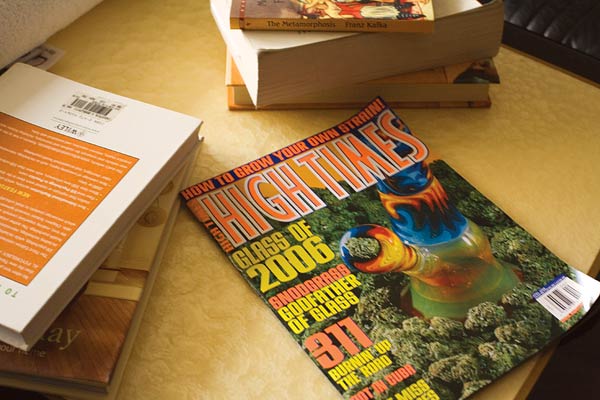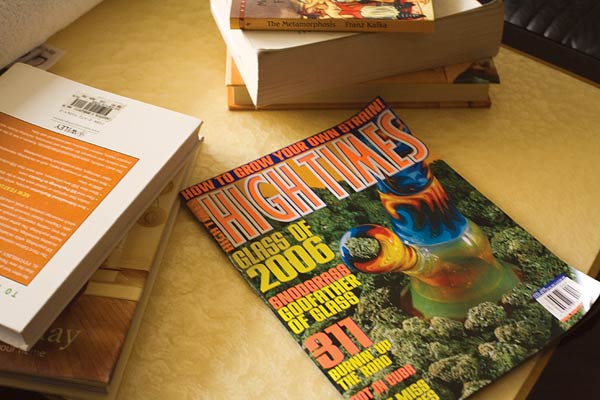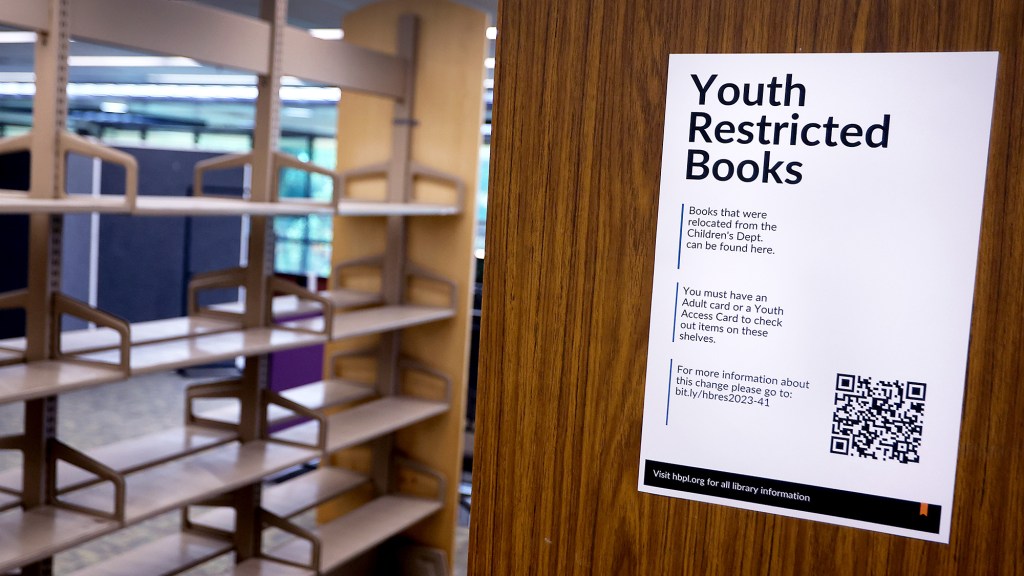NEW YORK—Casual readers of the marijuana-enthusiast magazine High Times are no more likely than non-readers to develop a habit for harder forms of reading, according to a study released Monday by the National Institutes of Health.

The findings raise significant doubts about the so-called “gateway magazine” theory, which claims that High Times readers run a higher risk of moving on to harder-hitting titles such as Time and Newsweek, or even mind-expanding publications like Scientific American.
“The conventional wisdom is that High Times users go on to experiment with harder-cover reading materials, becoming ’book junkies’ who rummage through street bargain bins for a fix,” said Dr. David Kunkel, the study’s chief author.
“Our study has determined this to be wholly false. In fact, many of our test subjects were discovered to be borderline illiterate.”
Researchers tracked the daily reading habits of 120 occasional and regular High Times readers and found that by the end of the eight-month study, none of the subjects had any interest in reading National Book Award finalists, historical nonfiction, or political biographies.
“Our study subjects were in no apparent danger of a literary overdose,” said Kunkel.
The study did report, however, that some participants occasionally used over-the-counter books and magazines to help them fall asleep.
Kunkel said some of the participants had been chronic High Times readers in the 1970s, while others were new subscribers who had picked up their first issue just weeks before the study began.
“In not one instance,” Kunkel said, “was anyone tempted, even by peer pressure, to experiment with harder reading.”
The study found some evidence that long-term High Times exposure could put the peruser at increased risk for Maxim abuse. But, said Kunkel, evidence does not suggest that the sporadic reading of publications such as Lowrider magazine, Marijuana Grower’s Inside Guide, and Let’s Go Amsterdam indicated a larger trend toward more serious literacy.
A small percentage of study participants expressed familiarity with recreational books such as The Basketball Diaries, Naked Lunch, and the Tao Te Ching, but Kunkel and his researchers found participants read such books before becoming involved with High Times. “Many of them hadn’t been injected with serious prose in five, 10, even 15 years,” Kunkel said.
John P. Walters, director of the White House Office Of National Reading Control Policy, disputed the report’s conclusions.
“We’re kidding ourselves if we don’t believe heavy book use is a major problem,” Walters said. “We’ve all heard horror stories of young people not being able to put down Gravity’s Rainbow. Thanks to book kingpins like Barnes & Noble, more and more Americans—even kids—are gaining wider access to stronger, more potent reading material. And once they’ve read a gateway publication like High Times, they’re going to read whatever they want.”
Added Walters: “It’s sad but true: In America, you can find almost anything to read if you want it bad enough.”







